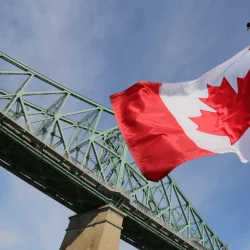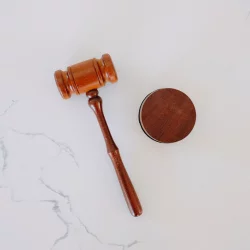What Happens if Fault Is Disputed in a Car Crash?
West Palm Beach, Florida, sees thousands of car accidents annually due to its busy highways, tourist traffic, and dense population. According to the Florida Department of Highway Safety and Motor Vehicles, Palm Beach County consistently ranks among the top counties for traffic crashes in Florida, with Interstate 95, the Florida Turnpike, and State Road 7 being particularly accident-prone areas. The combination of local commuters, seasonal residents, and tourists creates challenging driving conditions that often lead to complex accident scenarios.
The aftermath of car accidents brings a mix of emotions and complications, and one of the most challenging issues that can arise is when parties cannot agree on who is to blame. If you're involved in such a dispute, consulting with a West Palm Beach car accident lawyer can help protect your rights and navigate the complex legal process ahead.
How Fault Impacts Your Claim
Proving fault is crucial in an accident because it influences insurance claims and potential lawsuits. Insurance companies base their assessments on who caused an accident to determine responsibility for paying damages. If a clear fault cannot be established, negotiating a claim can become lengthy and complicated, causing issues with both repair timelines and financial recovery.
Gathering Evidence at the Scene
Evidence preservation is urgent immediately after an accident. Photos of the scene, vehicle damage, and visible injuries serve as important evidence. Witness statements provide unbiased perspectives that can be crucial later. Recording these details creates an accurate representation of what occurred, which assists in fault determination during the claims process.
The Role of Police Reports
A police report serves as an official record of the incident as written by law enforcement. While these reports are not always determinative of fault, they carry significant influence in insurance and legal proceedings. Officers document accounts from those involved and may provide their opinion on responsibility. Obtaining a copy of this report is essential for filing insurance claims and pursuing legal action.
Contacting Insurance Providers
After an accident, insurance companies must be contacted promptly. Each party needs to notify their respective insurance company, which will then conduct investigations and review available evidence. According to the National Association of Insurance Commissioners, this process may involve interviewing witnesses, reviewing police reports, and assessing damage. This phase requires cooperation and clear communication with insurers.
When Disputes Arise
Disagreements over fault present significant challenges in accident cases. When both parties maintain that the other is at fault, reaching an agreement can be difficult. In these situations, additional steps may be required to achieve resolution and ensure fair compensation for damages.
Mediation as a Solution
Mediation offers a way to resolve disputes outside of court. A neutral mediator brings all involved parties together for structured discussions aimed at finding mutually acceptable solutions. This approach can be less time-consuming and stressful than court litigation while still providing an opportunity for fair resolution.
Litigation and Court Proceedings
If mediation fails, litigation may become necessary. When a case goes to court, a judge or jury determines fault after examining all presented evidence. Litigation requires significant time and money, so weighing costs against potential benefits is important. Experienced legal representation increases the likelihood of a favorable outcome.
Effect on Insurance Premiums
Fault disputes can affect future insurance costs. Rates typically increase when a driver is found at fault for an accident, but even unresolved disputes can impact premiums. Insurance companies assess risk on an individual basis, and involvement in accidents affects perceived risk levels regardless of fault determination.
Preventative Measures
While not all accidents can be prevented, certain steps can reduce the likelihood of fault disputes. Defensive driving courses improve awareness and reaction times, helping drivers avoid dangerous situations. Regular vehicle maintenance ensures mechanical failures don't contribute to accidents. Staying focused and driving carefully reduces overall accident risk.
Long-Term Consequences
Fault disputes can have lasting effects beyond immediate financial concerns. The stress and anxiety from prolonged legal battles can impact personal well-being and relationships. Addressing these situations promptly and seeking appropriate help when needed is crucial for minimizing long-term negative effects.
Seeking Professional Assistance
For complex situations involving disputed fault, legal guidance becomes invaluable. Car accident attorneys who understand traffic law complexities can provide strategic advice and representation. They help navigate the legal system while protecting rights and working toward favorable resolutions.
Conclusion
Disputed fault in car crashes creates challenging situations that require careful handling. Understanding the process, gathering proper evidence, and exploring mediation or litigation options when necessary are key steps. With professional guidance and a proactive approach, accident victims can work toward fair resolutions while protecting their financial interests and peace of mind.
More to Read:
Previous Posts:



